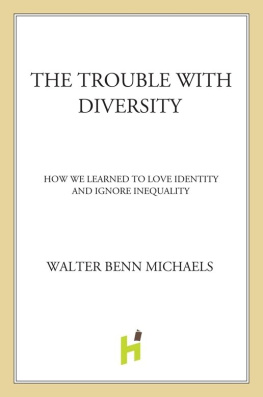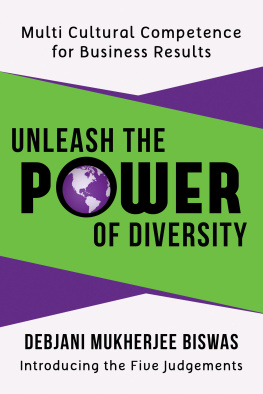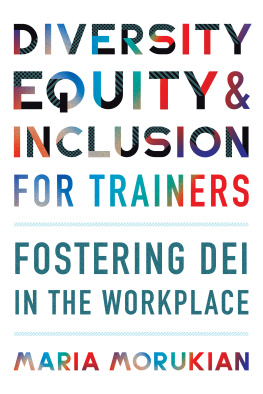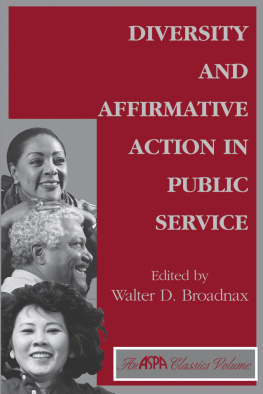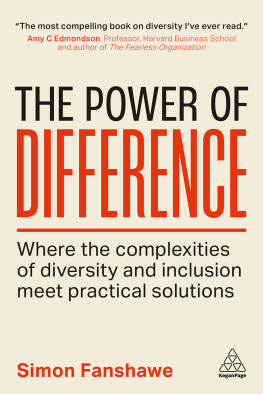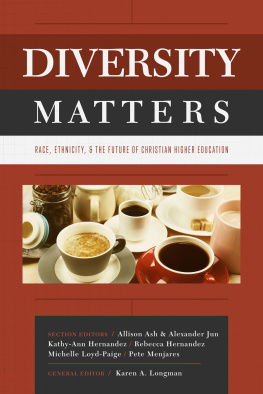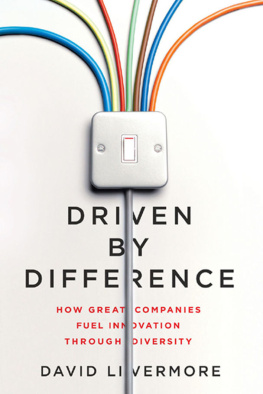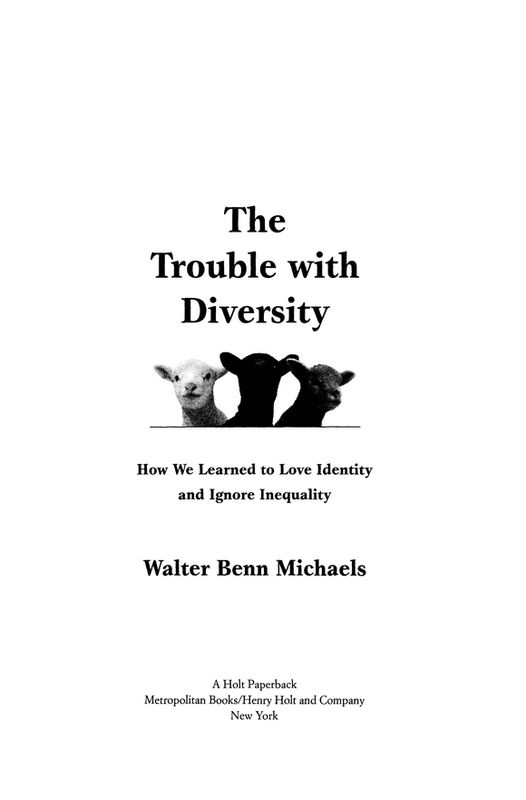This book is for Jenniferso necessary.
T he rich are different from you and me is a famous remark supposedly made by F. Scott Fitzgerald to Ernest Hemingway, although what made it famousor at least made Hemingway famously repeat itwas not the remark itself but Hemingways reply: Yes, they have more money. In other words, the point of the story, as Hemingway told it, was that the rich really arent very different from you and me. Fitzgeralds mistake, he thought, was that he mythologized or sentimentalized the rich, treating them as if they were a different kind of person instead of the same kind of person with more money. It was as if, according to Fitzgerald, what made rich people different was not what they had their moneybut what they were , a special glamorous race.
To Hemingway, this differencebetween what people owned and what they wereseemed obvious, and it was alsoobvious that the important thing was what they were. No one cares much about Robert Cohns money in The Sun Also Rises, but everybody feels the force of the fact that hes a race-conscious little kike. And whether or not its true that Fitzgerald sentimentalized the rich and made them more glamorous than they really were, its certainly true that he, like Hemingway, believed that the fundamental differencesthe ones that really matteredran deeper than the question of how much money you had. Thats why in The Great Gatsby, the fact that Gatsby has made a great deal of money isnt quite enough to win Daisy Buchanan back. Rich as he has become, hes still Mr. Nobody from Nowhere, not Jay Gatsby but Jimmy Gatz. The change of name is what matters. One way to look at The Great Gatsby is as a story about a poor boy who makes good, which is to say, a poor boy who becomes richthe so-called American dream. But Gatsby is not really about someone who makes a lot of money; it is instead about someone who tries and fails to change who he is. Or, more precisely, its about someone who pretends to be something hes not; its about Jimmy Gatz pretending to be Jay Gatsby. If, in the end, Daisy Buchanan is very different from Jimmy Gatz, its not because shes rich and he isnt (by the end, he is) but because Fitzgerald treats them as if they really do belong to different races, as if poor boys who made a lot of money were only passing as rich. Were all white here, someone says, interrupting one of Tom Buchanans racist outbursts. Jimmy Gatz isnt quite white enough.
Whats important about The Great Gatsby, then, is that it takes one kind of difference (the difference between the rich and the poor) and redescribes it as another kind of difference(the difference between the white and the not-so-white). To put the point more generally, books like The Great Gatsby (and there have been a great many of them) give us a vision of our society divided into races rather than into economic classes. And this vision has proven to be extraordinarily attractive. Indeed, its been so attractive that the vision has survived even though what we used to think were the races have not. In the 1920s, racial science was in its heyday; now very few scientists believe that there are any such things as races. But many of those who are quick to remind us that there are no biological entities called races are even quicker to remind us that races have not disappeared; they should just be understood as social entities instead. And these social entities have turned out to be remarkably tenacious, both in ways we know are bad and in ways we have come to think of as good. The bad ways involve racism, the inability or refusal to accept people who are different from us. The good ways involve just the opposite: embracing difference, celebrating what we have come to call diversity.
Indeed, in the United States, the commitment to appreciating diversity emerged out of the struggle against racism, and the word diversity itself began to have the importance it does for us today in 1978 when, in Bakke v. Board of Regents, the Supreme Court ruled that taking into consideration the race of an applicant to the University of California (in this case, it was the medical school at UC Davis) was an acceptable practice if it served the interest of diversity. The point the Court was making here was significant. It was not asserting that preference in admissions could be given, say, to black peoplebecause they had previously been discriminated against. It was saying instead that universities had a legitimate interest in taking race into account in exactly the same way they had a legitimate interest in taking into account what part of the country an applicant came from or what his or her nonacademic interests were. They had, in other words, a legitimate interest in having a diverse student body, and racial diversity, like geographic diversity, could thus be an acceptable goal for an admissions policy.
Two things happened here. First, even though the concept of diversity was not originally connected with race (universities had long sought diverse student bodies without worrying about race at all), the two now came to be firmly associated. When universities publish their diversity statistics today, theyre not talking about how many kids come from Oregon. My universitythe University of Illinois at Chicagois ranked as one of the most diverse in the country, but well over half the students in it come from Chicago. What the rankings measure is the number of African Americans and Asian Americans and Latinos we have, not the number of Chicagoans.
And, second, even though the concept
The general principle here is that our commitment to diversity has redefined the opposition to discrimination as the appreciation (rather than the elimination) of difference. So with respect to race, the idea is not just that racism is a bad thing (which of course it is) but that race itself is a good thing. Indeed, we have become so committed to the attractions of race that (as Ive already suggested above and as well see at greater length in chapter 1) our enthusiasm for racial identity has been utterly undiminished by scientific skepticism about whether there is any such thing. Once the students in my American literature classes have taken a course in human genetics, they just stop talking about black and white and Asian races and start talking about black and European and Asian cultures instead. We love race, and we love the identities to which it has given birth.
The fundamental point of this book is to explain why thisis true. The argument, in its simplest form, will be that we love racewe love identitybecause we dont love class. to identify themselves as belonging to the upper class. The class we like is the middle class.
But the fact that we all like to think of ourselves as belonging to the same class doesnt, of course, mean that we actually do belong to the same class. In reality, we obviously and increasingly dont. The last few decades, as The Economist puts it, have seen a huge increase in inequality in America. the poor. From the economic standpoint, however, what poor people want is not to contribute to diversity but to minimize their contribution to itthey want to stop being poor. Celebrating the diversity of American life has become the American lefts way of accepting their poverty, of accepting inequality.
I have three goals in writing this book. The first is to show how our current notion of cultural diversitytrumpeted as the repudiation of racism and biological essentialismin fact grew out of and perpetuates the very concepts it congratulates itself on having escaped. The second is to show how and why the American love affair with raceespecially when you can dress race up as culturehas continued and even intensified. Almost everything we say about culture (that the significant differences between us are cultural, that such differences should be respected, that our cultural heritages should be perpetuated, that theres a value in making sure that different cultures survive) seems to me mistaken, and this book will try to show why. And the third goal isby shifting our focus from cultural diversity to economic equalityto help alter the political terrain of contemporary American intellectual life.

